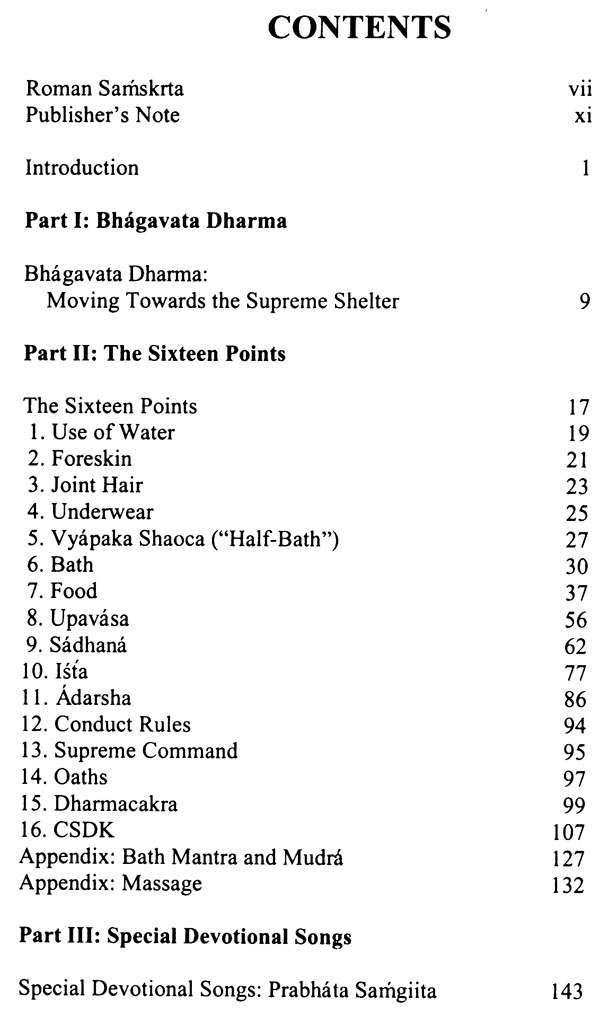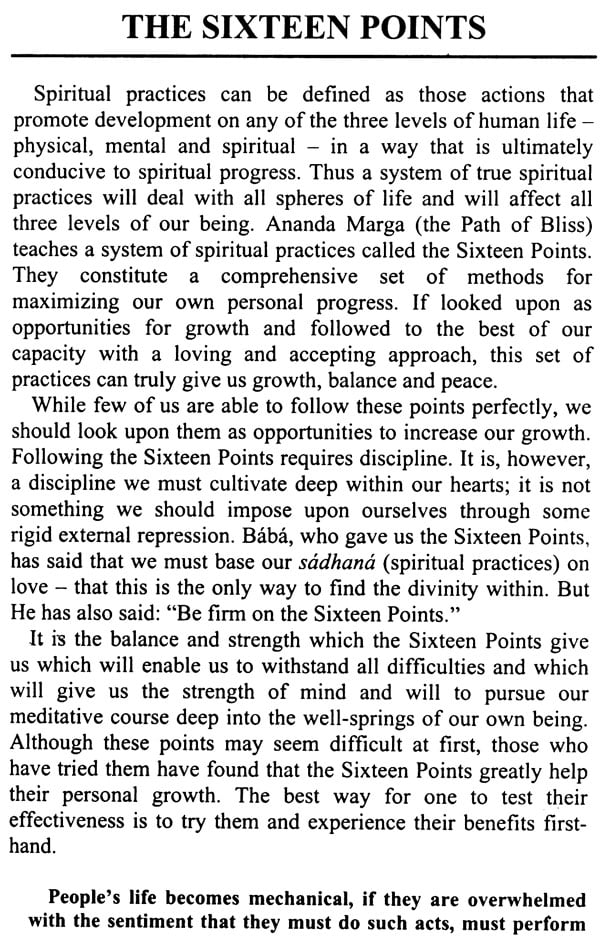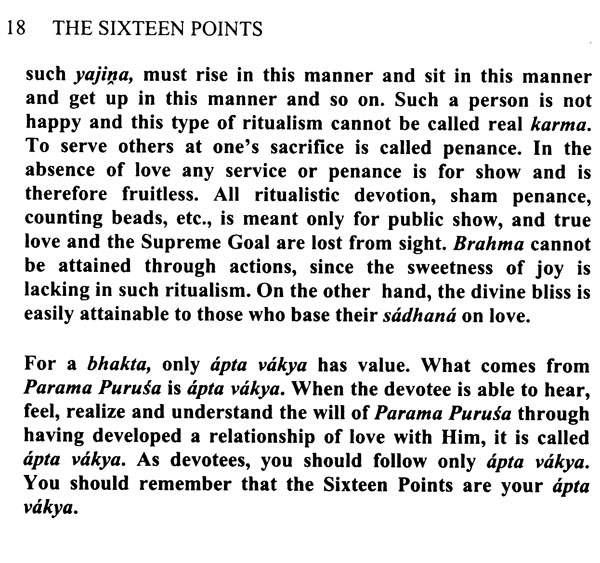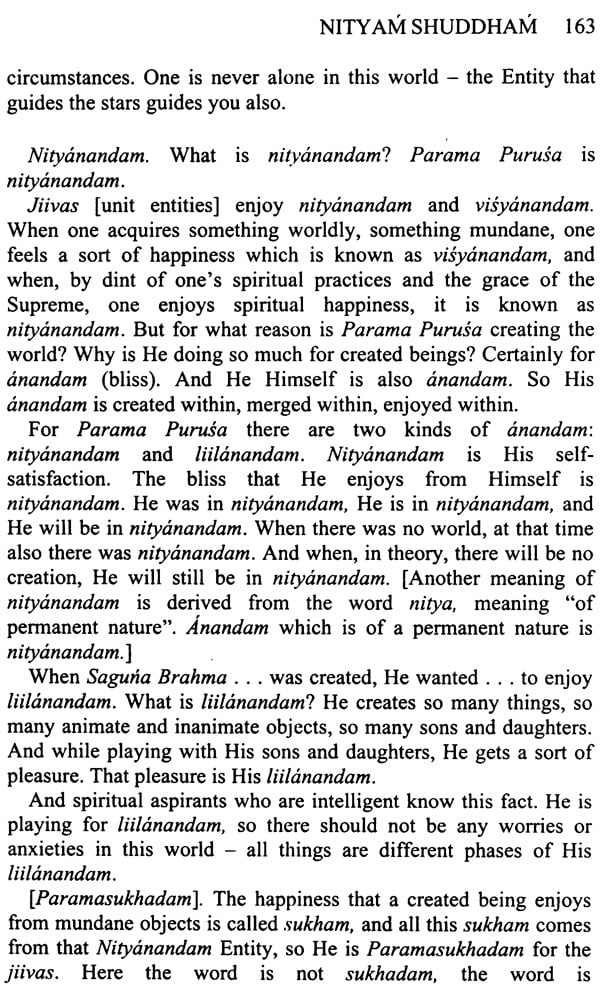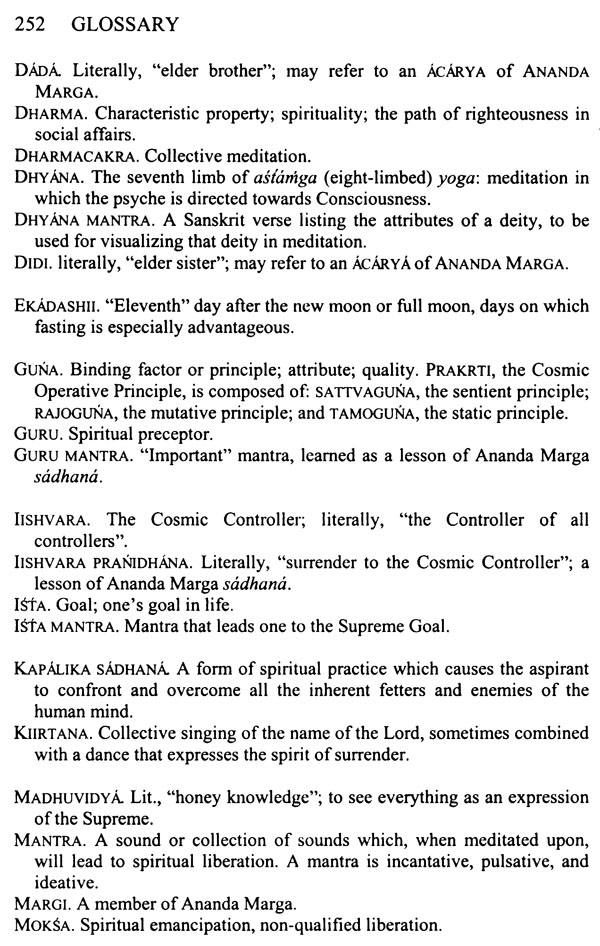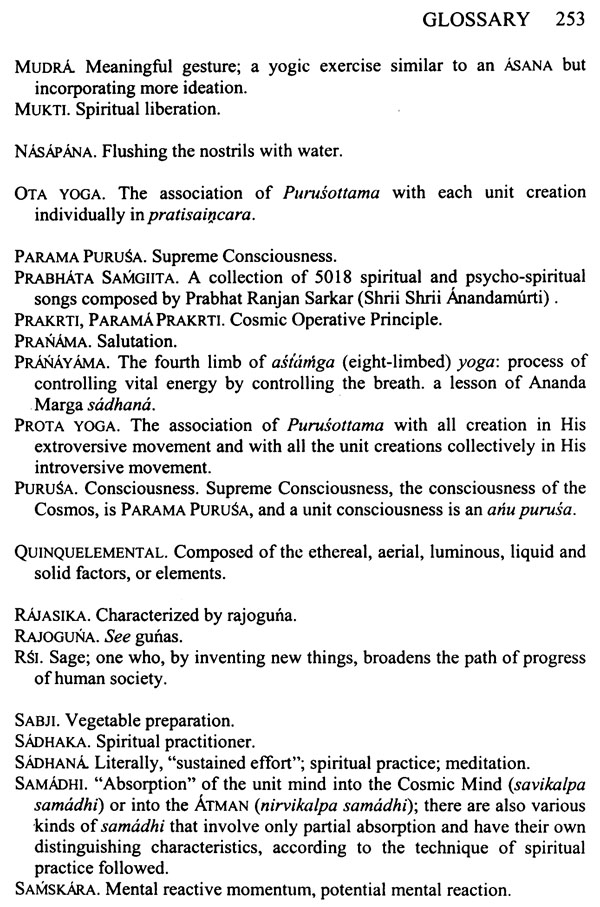
Ananda Marga - Spiritual and Social Practices
Book Specification
| Item Code: | NAY403 |
| Author: | Acyutananda Avadhuta |
| Publisher: | Ananda Marga Pracaraka Samgha, Kolkata |
| Language: | English |
| Edition: | 2014 |
| ISBN: | 97881725236664 |
| Pages: | 266 |
| Cover: | PAPERBACK |
| Other Details | 8.50 X 5.50 inch |
| Weight | 300 gm |
Book Description
The sadhana to assimilate the ideation of Parama Purusa by surrendering one's "I" feeling unto Him, is the sadhana of self- knowledge, and one can attain salvation only by this type of sadhana.
The man who does not have compassion, the man who does not shed tears at the miseries of others, is not a man but a stone. He cannot do any great work. Be happy with the happiness of others and troubled with the trouble of others. This alone is natural. Don't be unnatural. The effort to make everybody one's own culminates in love for the Lord; that is, devotion is love-for-God personified.... Paramatman Himself will teach knowledge and the technique of doing the work. It is not the devotee's headache... You have not to be afraid or anything when devotion is with you. There is nothing to be afraid of when Parama Purusa is with you . . .• In no case do you have to be disturbed ..
• . . Those who are devotion less will go on blinking and can never do anything against you; if devotion is with you, victory is with you.
In the course of our lives we must never lose sight of the fact that our rudimental duty is to develop innate love for the Supreme Entity as well as to attend to the trifarious development of society. All humanity is crying and waiting for us. As the vanguard of the march of humankind, we must develop our sincerity and love. When these qualities are developed, a person will not care about any hindrances, nor suffer from any fears or other complexes. It may be that Himalayan obstacles will come into the lives of spiritualists, but spiritualists will smilingly surmount even the highest and steepest peaks. For they realize that the strongest force in the universe - His love - is their constant companion. Thus we should always remember that we have come here only for Him, only to satisfy Him, and to establish a glorious and comprehensive society. Just as fish cannot live without water, similarly a sddhaka cannot live without the Supreme Being and His mission.
True spiritualists feel pain when they see the exploitation, injustice, alienation and degeneration in society. Through spiritual practice their minds keep expanding until finally they attain unity with the Cosmic Mind within which this physical universe is located. This is why real spiritualists feel that the pain of one is the pain of all, for they are above all sentiments except one - universal sentiment. They know that humanity is one, and they know that everybody has the birthright to enjoy this universe; everybody has the legacy to develop their physical, mental and spiritual potentialities, and nobody has the right to check this progress. The Sixteen Points and other practices make us strong morally and developed mentally, so that we can both move towards Him with ever-increasing acceleration and fulfill our duty to serve humanity.
For individual mental expansion, a universal social outlook is complementary to spiritual practices. Moreover, individual progress is linked to collective progress, as so beautifully described above ("The man who does not have compassion, the man who does not shed tears at the miseries of others, is not a' man but a stone"); and in order to foster collective progress, a congenial socio-economic framework is required. Hence in order to advance spiritually, a person must contribute in 'establishing a healthy human society in' the spirit of collective welfare. Spiritual practices must both foster individual progress and inculcate in spiritual aspirants a dedication to collective welfare.
Book's Contents and Sample Pages
